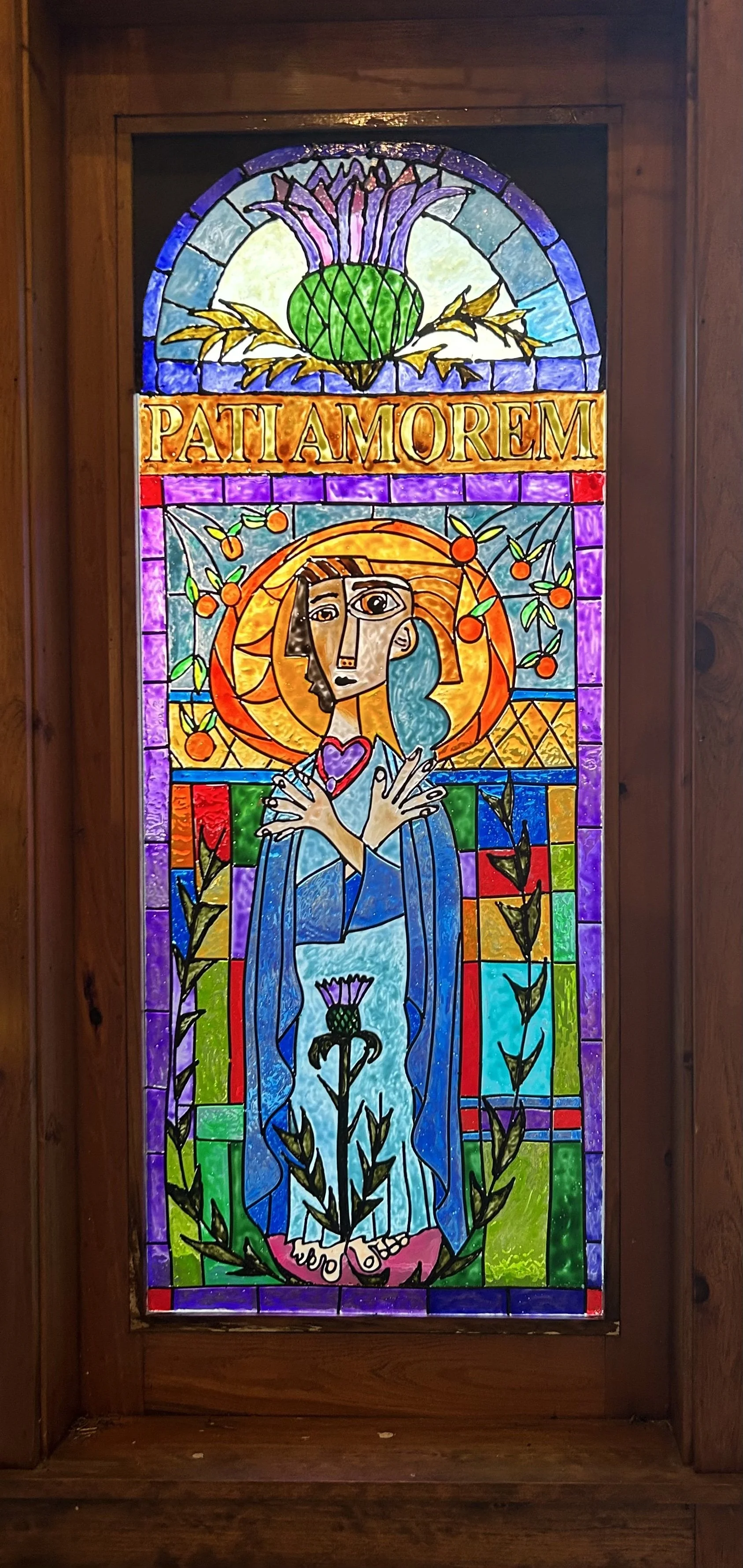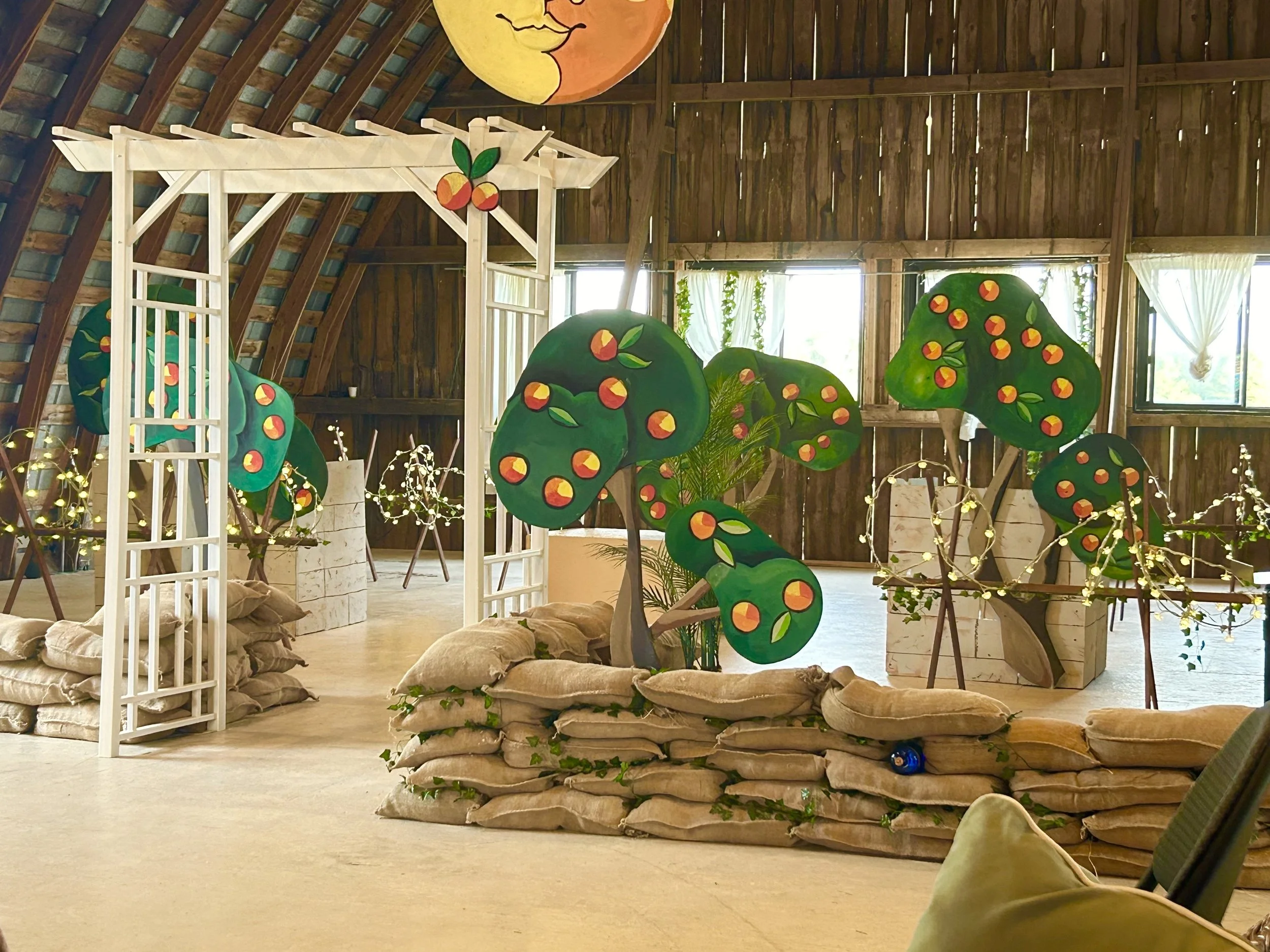The Theater at Woodshill’s “Much Ado About Nothing,” and its pivotal place among Central New York’s education and arts community.
For the last eight years, the Theater at Woodshill has been the pinnacle of new educational and artistic pursuits of theater within the local community and Central New York. Brothers, Andrew Guy Wilcox, President of Woodshill, and Artistic Director, Allen Guy Wilcox, executed the idea in the summer of 2016 with the vision to create a cultural institution that would remove the barriers of live performance theater while still making it engaging and accessible. Since its origin, the 501(c)3 nonprofit, New York State Charity based on a farm at 9755 Sessions Road, Sauquoit, New York 13456, has been committed to providing an enduring home for classic theater in Central New York with a special emphasis on the Bard, William Shakespeare, in performance and related educational endeavors.
Having unveiled their first-ever "Powles Internship in Stagecraft," this summer, and conducting their seventh season with a revisit to their debut production, “Much Ado About Nothing,” I had the opportunity to sit down with Allen Guy Wilcox, and this season’s Director, Alastair Boag, regarding the production. We discussed the values of education and mentorship within the Arts, and just how impactful Theater at Woodshill has become within the artistic environment of Central New York.
Beginning the Bard’s Barn
“I was asked early on and often: “You must know so much about Shakespeare.” Well actually, the point is almost the diametric opposite which is that I want to make sure I don’t get to the end of my life and haven’t worked through these plays. So I guess we’re going to have to make our own work.” - Allen Guy Wilcox
In a venue that is one-of-a-kind, the Theater at Woodshill is located in a white gable barn on Sessions Road in Sauquoit, New York. The structure provides a unique space, overlooking what has been dubbed by the Wilcox family as “Woodshill.” During intermission, a vibrant orange and pink sunset can be found blushing over the lush forests and hills that give the theater its name that flank the Wilcox’s homestead. Sheep and donkeys may even be grazing if you are so lucky to see them. Not only does the deck provide a gorgeous backdrop to the unique venue, but it also serves as a reminder that what Woodshill cannot be found anywhere else. During the performance, the audience is divided on either side of the loft where the players make their stage. Actors use the space to their advantage, directly interacting with viewers in floral accent chairs. Characters may weave in and out of the audience, or even appear unexpectedly, entering and exiting from either ends of the barn and descending narrow stairs with haste and excitement.
“It’s a complicated playing space,” says Boag. “And we try to do different things each year with ways in which we furnish it with set pieces and the things we build to represent everything from woods to buildings and the various locations we need to tell the story clearly. … We’re playing with the idea of how we can use this space as imaginatively as possible and the vehicle for that imaginative use is the stories that appear in Shakespeare’s plays.”
Woodshill’s Company
Stained-glass window created by Cate Reynolds with the phrase “Amor vincit omna“ meaning “love -the real one- wins upon all.”
For one familiar with Shakespeare, they may know that it is never just a one-man show. It takes a company. “...we get to form a company and keep relationships with people who have rich experience performing elsewhere performing and directing elsewhere, and then what’s cool about that, is that we can absorb all of the best lessons and practices and that shapes us,” Wilcox explains. “It turns out toward people who were not just fun and talented but also educators, and that speaks to a quality of mind, and heart and soul in a person. And that we wanted to do these plays so that we could understand these plays, so that we had a mechanism so that we could continue to work through Shakespeare’s plays.”
“I wanted to use the programming to help contextualize work. The first three seasons (at Woodshill Theater) were essentially a festival called “The Turn of the Century Shakespeare Festival.” We did three plays which were produced in three consecutive years and so part of the hope was that the audience and the company would understand that, and see these plays as an evolution or unfolding or elaboration.”
The creative bond and understanding is tangible between Wilcox and Boag as Alistar picks up right where Allen left off. “Being able to work out which characters in which plays were played by the same people across the time that Shakespeare was performing these plays for the first time and thinking whether you could do the same with the company you have here at Woodshill is really fun. And the people who play those roles, “Oh that’s a bit like what I played last year”…. But the fun bit (of working with the same group of people) is that you can have conversations, … And you suddenly build up a relationship with the plays through the characters and through the actors that you’ve been with so you are forming a company that has an authenticity about it because we are living and breathing the plays in this very intensive space and time.”
“We build up a body of knowledge and I think that’s something that’s unique about theater. Theater is one of the only domains where this type of direct transmission and cultivation of the body of living knowledge still happens. … When you memorize a great amount of text it shapes you even if you are not performing that piece of text, it still shapes you and the relationship shapes you,” Wilcox muses on his reflections as Artistic Director. “Having a core of a company, helps me almost spiritually approximate what it would feel like to have a repertory company in some way, because now it’s staggered across years but we are still the same company.”
The Director’s Cut
Embarking on his Woodshill directorial debut with this year’s “Much Ado About Nothing,” Alistar Boag is one of those very educators and familiar faces seen within recent Woodshill productions. “I’ve mainly been a teacher, and a sort of actor when I can, provided with my teaching,” he says when asked about his start into theater. “And I have done a lot of directing in schools, obviously. High school, mainly, and I’ve also done a lot of directing outside of schools as well, in both opera and stage.” His first involvement with Woodshill Theater came about in the 2021 production of Shakespeare’s “Twelfth Night.”
Allen Guy Wilcox boasted, “Alastair has this very powerful magnitude… I had him over to my apartment with a number of actors to read a short play by Chekhov, … Alastair’s performance blew us out of the water. And Alastair, very generously and lovingly, came up (to Woodshill) as an audience member and … the first time we got him on the books was during COVID. Because we weren’t capable of doing a stage play that year, we did what I like to call a ‘radio play,’ what is essentially a podcast, titled “Twelfth Night.” Alastair narrated the play, and also played Malvolio.”
“Much Ado About Nothing”
This year’s production of “Much Ado About Nothing,” takes place in one of Woodshill’s most contemporary settings yet, the 1940’s. As a turbulent time in modern history, taking a work of the Bard and setting it into a narrative which is already so well known was an incredible journey for director, Alastair Boag.
“Soldiers return from the wars to a community which has been therefore depleted of its menfolk who have been away fighting," Boag said. "I became interested in the idea of what the historical equivalent that registers within the public imagination and would read as a recognizable period to set this in … let’s have it set at the moment that the men come back from the Second World War."
Boag said using this "unsettling" time as a backdrop, creates a whole new context for the work.
"Looking at the play through that lens, suddenly there is a kind of sensibility to be found in the tension that exists between those people who have been away and coming back into the world."
But he adds that this is not done easily.
“I think it is a mistake to think 'You can put a Shakespeare story wherever you want,' but the more we thought about this as a possibility, the more we found that it actually was an interesting way of amplifying some of the things that we knew already to be in the play,” Boag said.
“And it's a funny thing about a number of the comedies that they don’t always leave the best taste in your mouth even though they resolve," Wilcox added. "They resolve in terms of the community’s hierarchy, there’s kind of a harmony. People get matched up and rewards are met out as needed. … Comedic in that sense is different from comic. There are many comic elements in “Much Ado About Nothing” but its comedic element has to do with kind of grinding through this return from war and having society remain intact by hook or by crook at the end of it. So that’s been cool to observe and come to light.”
Boag concludes, “It's a play that takes forgiveness seriously. Which I find really interesting. People behave badly in this play, really badly, and forgiveness is difficult. Forgiveness is not comfortable and it doesn’t mean forgetting and it doesn’t mean pretending that things didn't happen. It's an agreement to move on, if you’d like. … but it's also extremely funny. … there's a lot of relief in the air as well … and bad behavior.”
A Second Home
This past season of 2023-2024, has been quite the year of firsts for Theater at Woodshill. Including a production this past November, at Unity Hall located in the Village of Barneveld, featuring Tennessee Williams’ “The Two-Character Play.” Wilcox had nothing but fond things to say regarding their winter home for theater. “That is a very classic proscenium, it’s smaller but it's got these carved old style foot lights and it’s a treasure trove, that place. … For the foreseeable future, (we will) continue to do the Bard in the barn, and then explore contemporary or twentieth century American Classics in that space and maybe Chekhov, Strindberg, and other playwrights down the line.” As of the 2024-2025 season, Woodshill is planning on executing a winter production of Edward Albee’s “Who’s Afraid of Virginia Woolf?” at Unity Hall.
A wonderful element of Woodshill Theater is the range of experience across all levels despite not being a community theater. Each production has had a company that includes an array of professional actors, amateur actors, and students. Although experience among artists may vary, Boag boasts, “that’s definitely a strength. It’s really exciting to work with all sorts of different people. To see the experiences being shared and for older people working with younger people, people who are still in school or out of school. I think it’s just delightful and it’s really exciting to work with younger people.”
Cultivating the Arts through Education
Stained-glass window created by Cate Reynolds with the word “Patiamorem.“
Where Theater at Woodshill is an artistic institution, it is also equal parts educational. From providing internships and mentorship within Shakespearean theater, they also continue to further cultivate their flagship endeavor into education titled, “Will Power.”
During the academic year, Theater at Woodshill members will take a speech that is inspiring and bring it forth to local high schools in Central New York. Aiming to instill a sense of resilience among youth, they select 15-18 students to present two lines of the speech, from famous speeches found among William Shakespeare’s work. The students are professionally filmed with each clip stitched together to produce what is ultimately a riveting and rousing final production of one speech comprised of many voices. Previous works include memorable monologues from “Julius Caesar,” “Henry V,” and “Macbeth.”
“Will Power” has also been the source of longevity for the theater, with some participants having been involved in the various productions for three to four years now, coming back to play in ensembles, or contribute in various ways of stagehanding, or acting. Artistic Director Wilcox continues, “The point of “Will Power” is to connect and understand what's going on on the page and try to transmit that, and of course, inevitably, you find young people who are brimming with talent and are anxious for opportunities.”
In that same vein of education, Woodshill Theater also debuted their 2024 "Powles Internship in Stagecraft." This summer internship was inspired by Woodshill’s own founding Resident Dramaturg, and previously mentioned, Rachael Powles, with the intent to inspire and provide direct experience to local Central New York students interested in theater. Not only does the internship allow the selected individual to have hands-on experience in a Theater at Woodshill production, but it also lends aspiring theater professionals the opportunity to immerse themselves in Shakespearen theater. This year’s recipient was none other than Cecilia “Cece” Dillon, a graduate from New Hartford High School. Pursuing a career in theater at Colgate University, the Powles Internship has allowed her to gain knowledge in the various facets of stage management, directing, dramaturgy, and costume design. “She’s such an exceptionally young person,” Wilcox noted.
Here’s to Eight More Years
Upon reflection of the last eight years of Theater at Woodshill, Allen Guy Wilcox thanked Katie Healy, for her advice in the very beginning stating, “There are going to be people who aren’t actors who are going to want to help and you should let them help. There are going to be things that they know how to do that you have no idea how how to do. They are going to want to see this endeavor bear fruit.” In his 15 years spent away from the area, living in new york City, Wilcox lastly states “When I would hear about the Utica area in the newspaper it wasn’t always something that i felt reflected the heart and soul and the talent that was endemic here, and so the goal has never been any individual play … it's all of you. You are all of the talent, you're all families supporting… it's you doing this and it's everyone deciding who lives in New York (City) saying “I’m going to sacrifice a month” … And here's to eight more.”
This season of Shakespeare is solely dedicated to Guy Hartley Wilcox, MD, who passed in June. The very barn in which Theater at Woodshill exists, derived from his family’s dairy farm and has been in the Wilcox family for over 80 years. It was Guy who fashioned the gable barn loft into the performance space it is known as today. To simply say Woodshill Theater is a family effort would be an understatement. Each summer, the opening night of the production has commenced with graceful words from Allen and Andrew Wilcox’s mother, Mary Wilcox. This season, supporters of the theater were ever so reminded that it is not only a community that has built the theater in the barn, but the very family, friends, and volunteers that brought it to fruition and continue to only make it better each year.
With “Much Ado About Nothing” having concluded their opening night performance to kick off their summer riveting production. With vibrant sets, engaging music featuring The Andrew Sisters’ “Don’t Sit Under the Apple Tree,” and moving performances from the company, be sure to visit the Theater at Woodshill during one of their eight remaining performances throughout the next week.
Tickets for “Much Ado About Nothing” can be purchased online for their shows running from Saturday, August 3, through Saturday, August 10, 2024, as both August 1, and August 2 have sold out.
Primary backdrop of “Much Ado About Nothing“ set featuring an orange grove.




